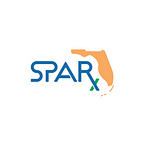What “Big Insurance” Doesn’t Want You to Know About Community Pharmacies
Patients and pharmacists share a special relationship, often stretching back generations. Even the frightening spike in drug costs can’t erode the feeling of trust and care we feel when walking into our neighborhood pharmacy.
But “neighborhood pharmacies” as we know them are rapidly disappearing, victims of large corporate pharmacy benefit manager (PBM) “middlemen” that now dominate the drug industry. If you’ve never heard of PBMs, you’re not alone. The largest PBMs own or are owned by, well-known health insurers (UnitedHealth; CVS Health, CIGNA) — and all own or have affiliate relationships with their own pharmacies.
If you’re a die-hard CVS or Walgreens shopper, you may not be familiar with the neighborhood (or community) pharmacy — but you should be. Community pharmacies are independently-owned pharmacies that provide the same services as national retail pharmacies but cost the same, if not less, than the “big” pharmacies.
Think of independent pharmacies like the local coffee shop or record store, but with prescription medicine instead of vinyl records.
Some insurers don’t want patients to fill their prescriptions at the local mom-and-pop pharmacy. A recent survey conducted in Florida by research polling firm Mason Dixon sheds light on why Big Insurance is trying to take patients away from their local pharmacies:
Patients Love Their Community Pharmacies
When asked about whether it was important to them to keep independent neighborhood pharmacies in business, a whopping 95% of those surveyed said yes. Regardless of what the large chains tout, the level of quality service and patient care that local small-business pharmacies provide can’t be recreated in the mass retail setting.
Small business pharmacies prioritize their patients. From knowing patients and their families by name to advocating for affordable medications — it’s a level of concern and care that goes far beyond the patient-by-number practices of the large corporate chains.
Lack of Patient Choice is a Dealbreaker
When asked if they “support or oppose allowing health insurance companies to encourage or require their patients to purchase prescription drugs at large chain pharmacies” 84% of respondents replied ‘Oppose’. Patients like choices, period. No one wants to be told where they can or can’t fill their prescriptions, and the best example is mandatory mail-order pharmacy.
For many, mandatory mail-order pharmacy is a dealbreaker. And it should be. Mail-order pharmacy is notoriously unpredictable: shipping delays, heat or cold exposure that compromises the integrity of medication; and difficulty “opting out” of the mail order pharmacy subscription model are just a few of the reasons patients disklike mail-order prescriptions.
Patient steering via financial threats is an additional issue. When a patient is threatened with increased costs if they choose their community pharmacy, it not only diminishes choice, it can result in lowered adherence, decreased satisfaction, higher costs for the health plan payer, and medical complications.
Unfair Business Practices Erode Trust
Most people agree that a business’s ethical or unethical practices are a barometer for customer trust. In healthcare, trust is a crucial component of patient satisfaction. When asked if they supported or opposed “allowing health insurance companies that have a financial interest in a large chain pharmacy to pay their own pharmacy more for a prescription drug than they pay an independent neighborhood pharmacy for the same drug,” the vast majority of respondents opposed the practice.
Business ethics matters as much, if not more, in healthcare than in other industries. The bait-and-switch business tactics of the vertically integrated healthcare monopolies put shareholders before patients. With profits over patients, the agenda to drive out small business competitors with cut-throat reimbursement practices are not what Floridians (or any U.S. resident) wants. These are not the values America’s economy is built on. Patient relationships with their community pharmacies are built on trust — not something that the nameless, faceless “service” options like mail-order or overworked, understaffed big box chain stores can provide.
The hard fact is this: locally owned community pharmacies may be valued and preferred by patients, but they are swiftly moving towards the “endangered species” list if changes are not made soon. Florida and other states must rein in the unchecked power of the vertically integrated health insurers.
The time for real, actionable change in our healthcare system is now. Governor DeSantis — Are you listening?
